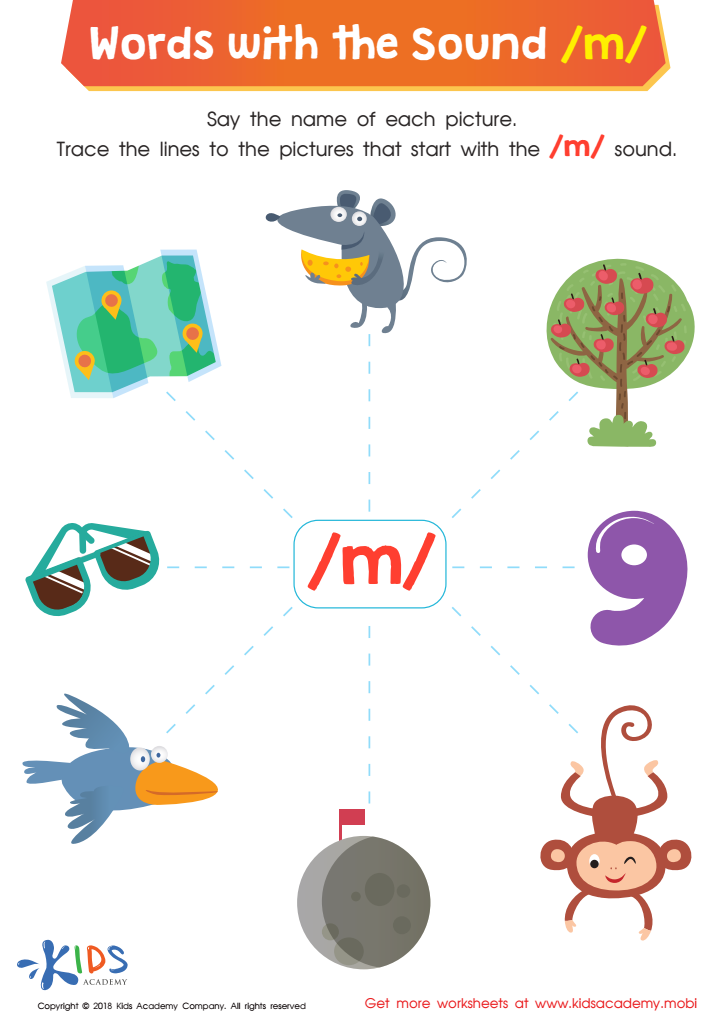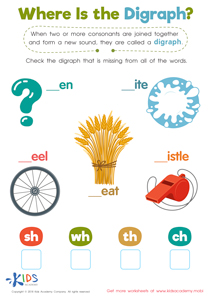Phonics practice Beginning Consonants Worksheets for Ages 3-6
4 filtered results
-
From - To
Enhance your child's early literacy skills with our engaging Phonics Practice Worksheets focused on Beginning Consonants, designed for ages 3-6. Our printable worksheets provide a fun and interactive way for young learners to recognize and sound out initial consonants in words. Each activity encourages children to identify letter-sound correspondences, fostering essential phonemic awareness. With colorful illustrations and age-appropriate challenges, these worksheets support early reading development while promoting fine motor skills and creativity. Perfect for home or classroom use, our resources help build a strong foundation for your child's future reading success. Download today and make learning exciting!


Twin Onset Worksheet


Words with sound p Reading Worksheet


Words with sound f Reading Worksheet


Words with Sound M Reading Worksheet
Phonics practice, especially focusing on beginning consonants, is crucial for children aged 3 to 6 as it lays the foundation for their reading and writing skills. At this age, children are developmentally primed to recognize and reproduce sounds, making it an optimal time to introduce phonemic awareness. Mastering beginning consonants helps children decode words, as they learn that specific letters correspond to specific sounds, facilitating their ability to sound out and read new words independently.
Engaging in phonics activities enhances vocabulary development, increases spelling proficiency, and builds confidence in reading. When children practice identifying beginning consonants, they develop crucial listening and sound discrimination skills, essential for effective communication. Furthermore, phonics practice integrates playful learning, making it enjoyable and engaging, which can foster a positive attitude toward literacy.
Parents and teachers also play a vital role in reinforcing these concepts through interactive games, stories, and daily conversations. Consistent support not only enhances learning but also encourages children to appreciate language's beauty and complexity. Ultimately, a strong grasp of beginning consonants will serve as a stepping stone for more advanced literacy skills, significantly influencing children's overall academic success and fostering a lifelong love for reading.
 Assign to My Students
Assign to My Students













